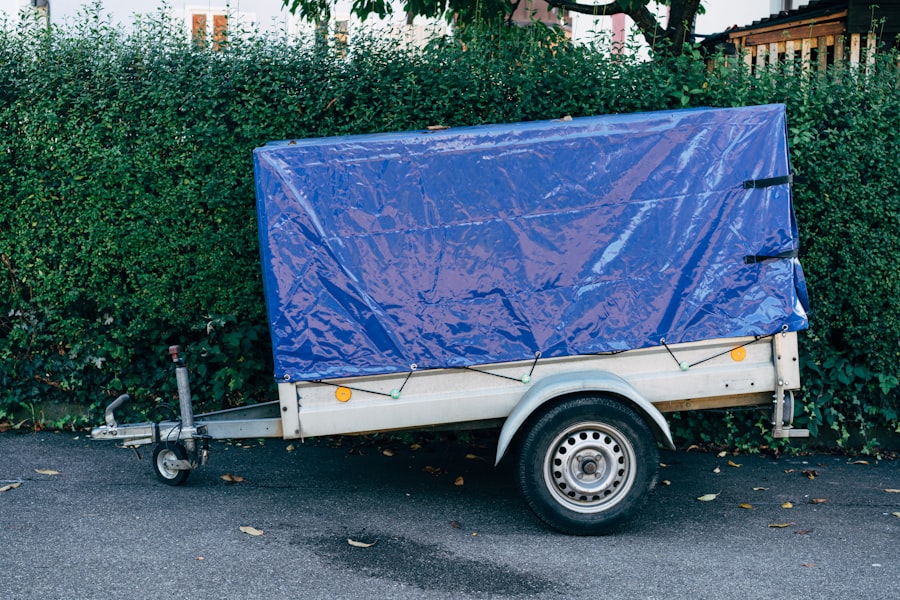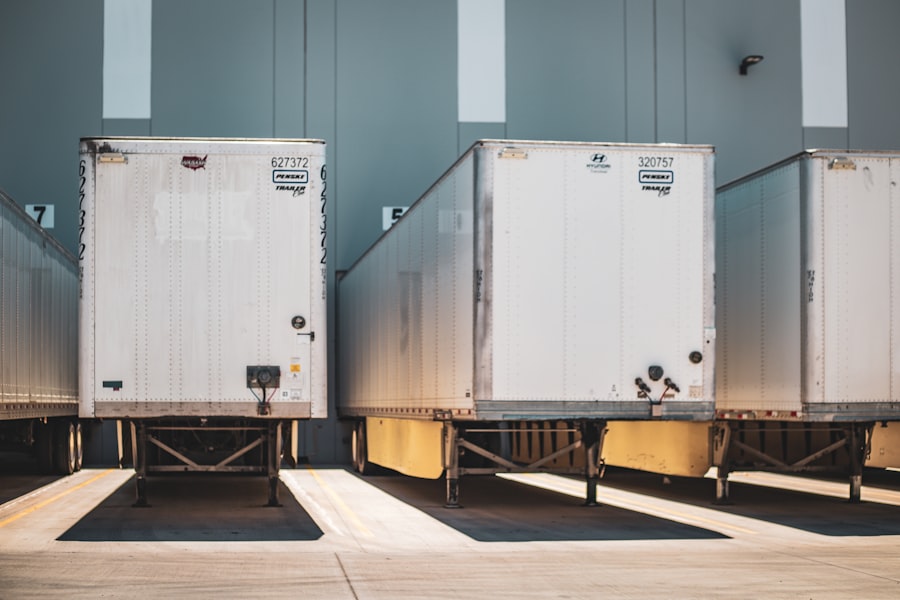Single wide trailers, often referred to as mobile homes or manufactured homes, have become a popular housing option for many individuals and families seeking affordable living solutions. These structures are typically narrower than double wide trailers, measuring around 14 to 18 feet in width and up to 80 feet in length. The design of single wide trailers allows for efficient use of space, making them an attractive choice for those who prioritize functionality without sacrificing comfort.
As the housing market continues to fluctuate, single wide trailers present a viable alternative for those looking to own a home without the burden of exorbitant costs. The appeal of single wide trailers extends beyond their affordability; they also offer a unique lifestyle that emphasizes simplicity and mobility. Many people are drawn to the idea of living in a space that can be easily relocated, providing the freedom to change their surroundings without the hassle of traditional home buying and selling processes.
This flexibility is particularly appealing to younger generations and retirees alike, who may seek adventure or wish to downsize their living arrangements. As societal norms shift towards valuing experiences over material possessions, single wide trailers have emerged as a practical solution for those looking to embrace a more minimalist lifestyle.
Key Takeaways
- Single wide trailers offer an affordable and flexible housing option.
- They provide cost-effective living with low maintenance and energy efficiency.
- Customization options allow residents to tailor their homes to personal needs.
- Community living enhances social connections and shared resources.
- Their mobility and smaller environmental footprint support sustainable lifestyles.
Cost-Effective Living
One of the most significant advantages of single wide trailers is their cost-effectiveness. The initial purchase price of a single wide trailer is considerably lower than that of a traditional home, making it an accessible option for first-time buyers or those on a tight budget. According to the U.S. Census Bureau, the average cost of a new manufactured home is approximately $100,000, while the median price of a single-family home hovers around $400,000. This stark contrast in pricing allows individuals and families to invest in their own living space without incurring crippling debt. Moreover, the ongoing costs associated with single wide trailers are generally lower than those of conventional homes. Property taxes on manufactured homes tend to be less burdensome, and homeowners can often find affordable insurance options tailored specifically for mobile homes. Additionally, many single wide trailers are designed with energy efficiency in mind, which can lead to significant savings on utility bills over time. With lower monthly expenses, residents can allocate their resources toward other priorities, such as education, travel, or savings.
Flexibility and Customization

The flexibility offered by single wide trailers is another compelling reason for their growing popularity. Homeowners have the option to relocate their trailers if necessary, whether due to job changes, family dynamics, or simply a desire for a new environment. This mobility is particularly advantageous for those who work in industries that require frequent relocation or for families that may need to move closer to relatives or job opportunities.
The ability to take one’s home along on life’s journey fosters a sense of freedom that is often absent in traditional homeownership. Customization is also a key feature of single wide trailers. Many manufacturers offer a range of floor plans and design options that allow homeowners to tailor their living spaces to suit their personal tastes and needs.
From choosing the layout and finishes to selecting energy-efficient appliances and fixtures, individuals can create a home that reflects their unique style. This level of personalization not only enhances the living experience but also contributes to a sense of ownership and pride in one’s home.
Community Living
| Metric | Description | Value | Unit |
|---|---|---|---|
| Population in Community Living | Number of individuals living in community-based settings | 12,500 | People |
| Average Monthly Support Hours | Average hours of support provided per individual per month | 35 | Hours |
| Employment Rate | Percentage of community living individuals employed | 42 | % |
| Community Participation Rate | Percentage of individuals engaged in community activities | 68 | % |
| Average Length of Stay | Average duration individuals have lived in community settings | 4.2 | Years |
| Staff to Resident Ratio | Number of support staff per resident | 1:4 | Ratio |
| Client Satisfaction Rate | Percentage of individuals satisfied with community living services | 89 | % |
Single wide trailers are often situated within manufactured home communities, which can foster a strong sense of belonging among residents. These communities typically offer shared amenities such as parks, playgrounds, and recreational facilities, encouraging social interaction and camaraderie among neighbors. For many individuals and families, living in such close proximity to others creates opportunities for friendships and support networks that can enhance overall quality of life.
Additionally, manufactured home communities often host events and activities that bring residents together, further strengthening community ties. From holiday celebrations to potluck dinners and game nights, these gatherings provide an avenue for residents to connect and engage with one another. This sense of community can be particularly beneficial for newcomers who may be seeking companionship or support as they adjust to their new living environment.
Low Maintenance and Energy Efficiency
Single wide trailers are designed with low maintenance in mind, making them an attractive option for those who prefer a hassle-free lifestyle. The materials used in construction are often durable and easy to care for, reducing the time and effort required for upkeep. For instance, many single wide trailers feature vinyl siding and metal roofs that resist weathering and require minimal maintenance compared to traditional wood siding or shingles.
This ease of maintenance allows homeowners to spend less time worrying about repairs and more time enjoying their living spaces. Energy efficiency is another hallmark of modern single wide trailers. Many manufacturers incorporate energy-saving features such as high-quality insulation, energy-efficient windows, and appliances designed to minimize energy consumption.
These advancements not only contribute to lower utility bills but also promote a more sustainable lifestyle by reducing the overall carbon footprint of the home. As energy costs continue to rise, the benefits of living in an energy-efficient single wide trailer become increasingly apparent.
Accessibility and Mobility

Accessibility is a crucial consideration for many individuals when choosing a living space, and single wide trailers often excel in this regard. The design of these homes typically includes features that accommodate residents with varying mobility needs. For example, many models offer open floor plans that facilitate easy movement throughout the space, while wider doorways and hallways can accommodate wheelchairs or walkers.
Additionally, homeowners can customize their trailers with ramps or grab bars as needed, ensuring that their living environment remains safe and functional. The mobility aspect of single wide trailers also plays a significant role in accessibility. For individuals who may need to relocate due to health concerns or changes in family dynamics, having a home that can be easily transported provides peace of mind.
This flexibility allows residents to maintain their independence while adapting their living situations as necessary. Whether moving closer to family members or seeking a more suitable climate for health reasons, the ability to take one’s home along can be invaluable.
Environmental Impact
As awareness of environmental issues continues to grow, many individuals are seeking housing options that align with their values regarding sustainability. Single wide trailers can offer an environmentally friendly alternative to traditional homes when designed with eco-conscious features in mind. Many manufacturers are now prioritizing sustainable materials and construction practices that minimize waste and reduce the environmental impact of building new homes.
Furthermore, the smaller footprint of single wide trailers inherently requires fewer resources than larger homes. With less space to heat or cool, residents can enjoy lower energy consumption while still maintaining comfort within their living environments. Additionally, many modern manufactured homes are equipped with energy-efficient appliances and systems that further reduce energy usage and promote sustainability.
By choosing a single wide trailer, homeowners can contribute positively to environmental conservation efforts while enjoying the benefits of affordable living.
Embracing Affordable Living
In an era where housing affordability remains a pressing concern for many individuals and families, single wide trailers present an appealing solution that combines cost-effectiveness with flexibility and community living. The advantages of low maintenance requirements, energy efficiency, accessibility, and environmental sustainability make these homes an attractive option for diverse demographics seeking affordable housing solutions. As society continues to evolve and prioritize experiences over material possessions, embracing the lifestyle offered by single wide trailers may represent a shift towards more mindful living choices.
By choosing this path, individuals not only secure their own financial well-being but also contribute positively to their communities and the environment at large. The journey towards affordable living is not merely about finding shelter; it is about creating a fulfilling life that aligns with personal values and aspirations.



